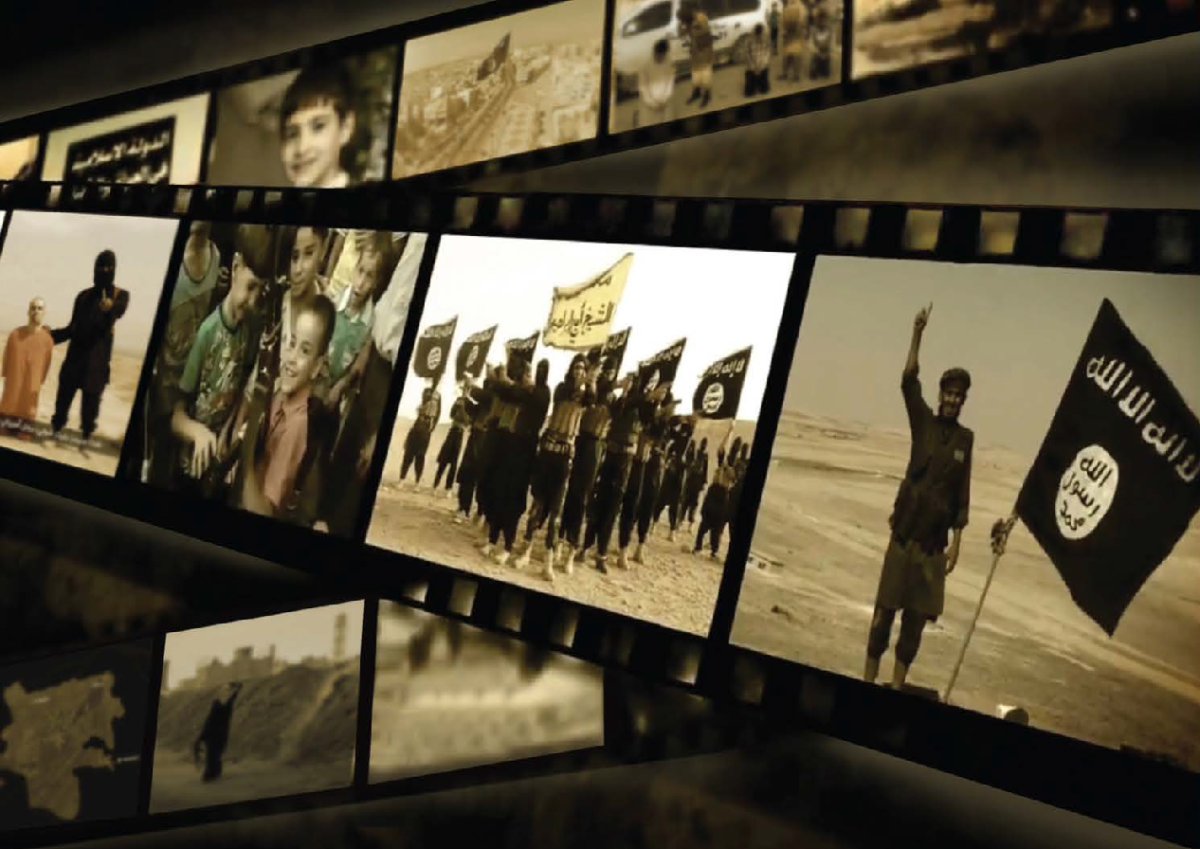

New book explores the statecraft of Islamic State through its use of videos
A new book, Islamic State, Media, and Propaganda - Performances of the ‘Visual Caliphate’, by Dr Moign Khawaja and Prof Christian Kaunert in Dublin City University’s School of Law and Government is an in-depth visual analysis of 374 official IS videos, which were published between the Caliphate’s establishment in July 2014 and dismantlement in July 2017, and collected from various online IS channels before their takedown.
Analysing the video content from IS through four different case studies; Population, Territory, Governance and IS’ interactions with other states and non-state actors, its key findings were:
- Propaganda and recruitment
IS leveraged high-quality video to brand itself and construct a narrative of legitimacy. It was the first major jihadi group to declare itself an "Islamic State" and used its video propaganda to recruit supporters globally. -
Statehood
IS strategically branded itself as a functioning state, presenting governance, military strength, foreign relations and territorial expansion in its official media releases.It showcased law enforcement, public services, and administration, repeatedly emphasising its monopoly on violence and governance.
- Gendered roles
IS propaganda depicted a cohesive Islamic society under Sharia law, emphasising strict gender roles, with men shown as fighters and breadwinners, young boys groomed for combat, and young girls as future wives and mothers, whereas not projecting women on the screen to imply their background roles as wives and mothers. - Territorial strategy and sovereignty
IS followed a three-stage territorial expansion strategy: establishing control, legitimising its rule, and calling for global supporters to defend the Caliphate. Despite many military setbacks, IS framed these as divine tests and downplayed any defeats. - Foreign policy and diplomacy
IS rejected the modern international system but engaged with other jihadi groups to expand its network. It also described its opposition to other regional and global powers, while using civilian casualties from coalition airstrikes to justify terror attacks abroad and manipulating Islamic texts to fit its own narrative.
Speaking about the book, Dr Moign Khawaja said
“The book presents a longitudinal analysis of IS’s Caliphate. It represents a major research breakthrough in counterterrorism and security studies. Prof Kaunert and I investigated the breadth of official IS videos, uncovering the reasons behind their projections of a modern, functioning state while providing critical insights into their unprecedented media campaign.
Our publication contributes to a growing body of research on IS’s visual propaganda and state-building projects, serving as an indispensable resource not only for scholars, researchers, and students in fields such as international politics, Islamic studies, terrorism and security, digital and political sociology, and communications but also for individuals from other walks of life who are keen to learn more about this extraordinary terrorist phenomenon that has left an indelible mark on contemporary history.”
Co-author Prof Christian Kaunert said
“We are so pleased with how well our book has been received. Understanding the role video played for Islamic State is crucial to counter-terrorism and combating the threat of extremism.”
Praise for the book
Dr Rashmi Singh, PUC Minas, Brazil said
“This marvellously innovative book on the performance of the Islamic State’s “modern stateness” in its official videos is a pathbreaker in a field inundated with literature on the group. The authors have produced a methodologically systematic and empirically rich analysis that is both academically rigorous and engagingly written.”
Prof Oldrich Bures, Metropolitan University Prague, Czechia said
“‘[M]oving beyond the traditional focus on Islamic State’s (IS) visual propaganda content, Khawaja and Kaunert explore the projections of key IS’ state-like features in its official videos. The book offers many novel methodological and empirical contributions to the ongoing debate on whether or not IS should be considered a “state”.
You can read Dr Khawaja’s article about the book for The Conversation here.
